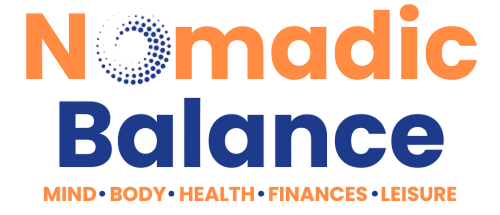Mental and physical health are deeply interconnected. When one suffers, the other is often affected. Poor mental health can lead to physical issues, while chronic physical conditions can impact mental well-being. Understanding this connection is crucial for achieving overall wellness. In this article, we will explore how mental and physical health influence each other and what you can do to maintain balance.
1. The Link Between Mental and Physical Health
The mind and body constantly communicate through the nervous, endocrine, and immune systems. Mental stress can trigger physical reactions, and physical illness can influence emotions and mood. Here are some key ways they interact:
- Stress and the Body: Chronic stress increases cortisol levels, leading to inflammation, heart disease, and weakened immunity.
- Depression and Physical Health: Depression is linked to conditions like obesity, diabetes, and heart disease. It can also lower pain tolerance and energy levels.
- Anxiety and Physical Symptoms: Anxiety can cause digestive issues, headaches, muscle tension, and rapid heart rate.
- Chronic Illness and Mental Health: Living with conditions like diabetes, arthritis, or cancer increases the risk of depression and anxiety.
- Sleep and Mental Health: Poor sleep affects cognitive function, mood regulation, and immune response.
2. How Mental Health Affects Physical Health
Mental health disorders don’t just impact emotions; they also affect the body in many ways:
a) Increased Risk of Chronic Diseases
- Depression and anxiety are linked to heart disease, high blood pressure, and diabetes.
- Stress weakens the immune system, making the body more vulnerable to infections.
b) Unhealthy Coping Mechanisms
- People struggling with mental health may engage in unhealthy habits like smoking, excessive drinking, or overeating, which can lead to obesity and other health issues.
c) Reduced Energy and Physical Activity
- Mental health conditions can cause fatigue, making it difficult to exercise, which is essential for physical well-being.
d) Digestive Issues
- The gut-brain connection means stress and anxiety can lead to stomach pain, bloating, irritable bowel syndrome (IBS), and other digestive problems.
3. How Physical Health Affects Mental Health
Just as mental health impacts physical health, physical conditions also affect mental well-being:
a) Chronic Pain and Mental Health
- Persistent pain from conditions like arthritis, fibromyalgia, or migraines can lead to depression and anxiety.
- The frustration of dealing with pain can increase stress levels and affect emotional stability.
b) Poor Nutrition and Brain Function
- Diets high in sugar and processed foods contribute to mood swings, anxiety, and depression.
- Nutrient deficiencies, such as low vitamin D or B12 levels, can affect mental clarity and energy levels.
c) Lack of Exercise and Mood Disorders
- Regular physical activity releases endorphins, which improve mood and reduce stress.
- A sedentary lifestyle is linked to an increased risk of depression and cognitive decline.
d) Sleep Disorders and Mental Health
- Sleep deprivation affects concentration, emotional regulation, and stress levels.
- Conditions like insomnia can worsen anxiety and depression.
4. Tips to Improve Both Mental and Physical Health
Since mental and physical health are connected, improving one can benefit the other. Here are some holistic strategies:
a) Prioritize Stress Management
- Practice meditation, deep breathing, or mindfulness to lower cortisol levels.
- Engage in hobbies or spend time in nature to relax the mind and body.
b) Exercise Regularly
- Even 30 minutes of moderate exercise daily can improve mood and reduce stress.
- Activities like yoga, walking, and strength training benefit both mental and physical health.
c) Maintain a Balanced Diet
- Eat whole foods rich in vitamins, minerals, and antioxidants to support brain and body function.
- Include omega-3 fatty acids, found in fish and flaxseeds, which help regulate mood.
d) Get Quality Sleep
- Maintain a consistent sleep schedule.
- Avoid caffeine, screens, and heavy meals before bedtime.
- Create a calming nighttime routine.
e) Seek Professional Help When Needed
- Therapy and counseling can provide tools to manage stress, anxiety, and depression.
- Medical professionals can help address physical health concerns that affect mental well-being.
f) Build Strong Social Connections
- Positive relationships reduce stress and improve emotional resilience.
- Engage in meaningful conversations and community activities.
Final Thoughts
Mental and physical health are closely linked, and taking care of one improves the other. By managing stress, maintaining a healthy diet, exercising, and prioritizing self-care, you can enhance your overall well-being. Small, consistent lifestyle changes can lead to significant long-term benefits.

